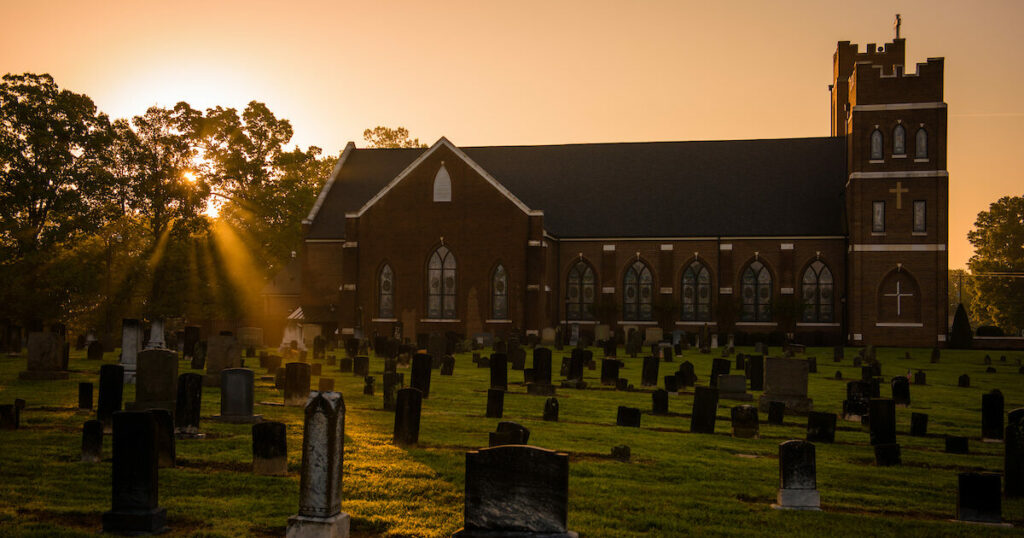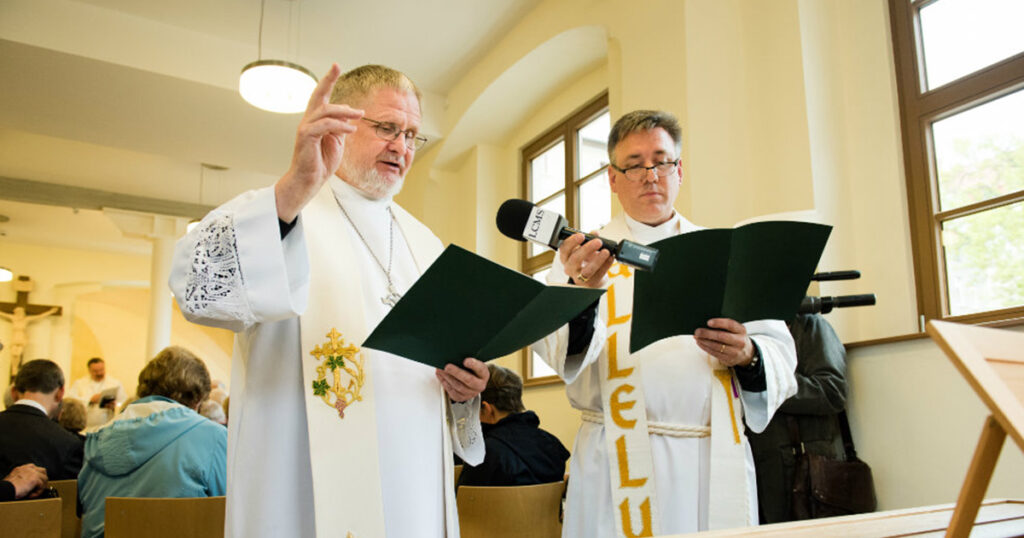We can’t flee from it. The novel coronavirus (COVID-19) has spread around the world without sign of stopping. Global markets are shaking. The Dow Jones Industrial Average sank over 3,000 points in the last week. The media coverage vacillates between issuing public warnings and scoring political hits. The disease might affect the upcoming presidential election; we might be reeling from the effects of COVID-19 for years to come.
From all appearances, we can’t escape the disease or its consequences.
To be clear, most of us will not die from COVID-19; it is not a new bubonic plague. Of 100 infected victims, 98 will probably survive and experience only mild, flu-like symptoms. But the effects of the disease on our lives will likely reverberate into the future.
In 1527, Luther wrote a letter to a friend because the bubonic plague was passing through Europe again and had struck both Silesia, where his friend lived, and Wittenberg, where Luther lived.
In the 14th century, the Black Death (the bubonic plague) killed between 75 million and 200 million people in Eurasia; it undoubtedly affected the course of European history. Fleas ferried the nefarious bacteria that caused buboes, or swollen lumps of infection, to develop under the victim’s skin. Sometimes the lumps exploded in pustular discharge; other times they spread over the rest of the body. It usually killed its victims in two to seven days.
When the plague struck a town, the wealthy would often flee to the countryside. The question put to Luther was simple: Should a Christian flee this horrific plague?
We cannot escape COVID-19 by fleeing to the countryside. How should a Christian live when he can’t flee an oncoming disease?
Live like you are baptized
Baptism is not a magical incantation to keep Christians safe. But, in Baptism, the Holy Spirit unites you to Christ and His resurrection. St. Paul writes, “We were buried therefore with him by baptism into death, in order that, just as Christ was raised from the dead by the glory of the Father, we too might walk in newness of life” (Rom. 6:4).
You “live like you are baptized” when you believe that nothing separates you from God’s love in Christ Jesus (Rom. 8:31–39). You live in Baptism when you laugh at the devil’s attempts to induce you to fear and dread. As Luther says, “Send those terrors right back to him” (LW 43:127). Be confident; you do not fear death, for you are united to Christ.
Death, however, still looms on the horizon for us all: “The wages of sin is death” (Rom. 6:23). Or in the words of Luther: “Since death is God’s punishment, which he sends upon us for our sins, we must submit to God and with a true and firm faith patiently await our punishment” (LW 43:119).
Christ’s death paid the price for your sins so that even though you “patiently await” physical death, you wait with the hope of the resurrection. To “live like you are baptized” means not fearing the deadly plague — or any disease — more than you fear, love and trust in God.
Fulfill your vocations even unto death
Christians fulfill their vocations for the neighbor. Husbands care for wives; parents care for and protect their children; children help aging parents.
So also a pastor stays and cares for dying parishioners. He stands by the deathbed of the plague-ridden and points them to Christ. He buries them. Likewise, doctors and medical professionals should remain at their stations to care for the sick.
Business owners should operate their businesses so their employees can continue to provide for their families. Parents must care for their children; children likewise must provide for their aging parents.
Christians have a duty to friends and neighbors also. The Christian must serve the infected neighbor. This sometimes involves contracting the disease, but Luther says, “Anyone who does not do that for his neighbor, but forsakes him and leaves him to his misfortune, becomes a murderer in the sight of God” (LW 43:126).
Do not tempt God
While the Christian must care for his neighbor unto death, he should not tempt God. Some people in Luther’s day refused to take measures against the plague: “They say that it is God’s punishment; if he wants to protect them he can do so without medicine or our carefulness. This is not trusting God but tempting him” (LW 43:131).
Not only does the careless man test God, he also risks the health and safety of his family. Take your medicine; wear your mask. Follow your doctor’s direction and try to prevent the disease from spreading to others in your home. Luther encouraged his readers to “fumigate your home.” Today we might say, “Follow the CDC’s guidance.”
As far as you are able, obey the directives of the government. Do not, of course, give up your hope in Christ Jesus, but God has provided those in authority to care for us. We obey their directives to care for our neighbor.
Finally …
In all things, cling to Christ. Go to church. Confess your sin. Receive absolution. Receive the Lord’s Supper, which Luther described as “a pure, wholesome, comforting remedy that grants salvation and comfort” (LC, Sacrament of the Altar, 68). If you become ill, do not fear an illness that merely harms your body, but fear Him who can destroy both body and soul in hell. He chose to die for you and to redeem you from every illness of soul and body.




God bless you for your wonderful encouraging message. May God equip you with His Holy Spirit and heavenly vision so that you can deliver more timely solutions to human problems. Stay blessed.
Excellent reminders. Thank you!
Thank you for this reminder that God is in control of the world, as opposed to sin being in control. Something like this makes me feel very out of control. I pray God help sustain me in faith that He will care for me and my family. He has already bought us with the blood of the Lamb.
I’m a member of the Church of Jesus Christ of Latter-day Saints who was pointed here by a friend who posted the link of Facebook. I really liked this. Having the perspective of a Christian I respected who went through similar (definitely worse in some ways) trying times to ours in provides some relatability as I seek the Lord’s comfort. Thanks for the caring words!
Ron,
Thank you for commenting. Luther always insisted on pointing to Christ and His work. Our fears grow out of our own efforts. When I trust in myself, any disease or plague is frightening. When I trust in my work, then I become afraid watching the stock market tumble and my retirement dwindling. When I look at the church and see it in decline, I become afraid and begin to think I must do more. When I see my sin for what it is, I become afraid because I cannot atone for my sin. In Christ, however, we have comfort. He suffered and died for us, and gives us this forgiveness and His work in Holy Baptism.
I encourage you to look at Luther’s explanation to the Third Article of the Creed for more information. https://catechism.cph.org/en/creed.html
Send me an email if you have more questions. lutheran.witness@lcms.org